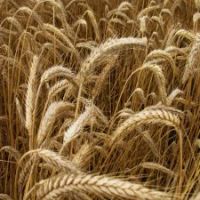Better cereal supply: Better pork profits

A major pork industry seminar has heard that improving the quality and supply of cereal grains is crucial to reducing the cost of production and improving productivity in the Australian pork industry.
The seminar at Technology Park, Bentley, WA, sponsored by the Pork CRC and supported by the Department of Agriculture and Food WA (DAFWA), was attended by about 40 growers and industry representatives.
Nutritional value
Pork CRC CEO, Dr Roger Campbell, told the seminar that while grains and grain by-products formed the majority of pig diets, their nutritional value varied greatly between grains, within grains and even between seasons. The nutrient value of grains also varied considerably between species.
Providing the maximum digestible energy for pigs at the lowest cost was a major area of research for the Pork CRC, which has recently commercialised NIRS calibrations which will be available to the industry by the end of the year.
“The NIRS calibrations will also benefit other livestock industries by identifying the energy value of grains for different animal types,” Dr Campbell said.
Pork CRC supported projects will introduce new barley, triticale and pea varieties next year, promising grain growers yield advantages and pork producers nutritional benefits.
“The triticale project is a particularly good model for developing other feed grains,” Dr Campbell said.
NIRS calibrations
Dr Ray King, Pork CRC Manager, Program One (‘Securing more reliable and consistent supplies of protein and energy for pig diets’), told the seminar that the NIRS calibrations would be available for the major feed grains to estimate not just digestible energy, but crude protein, crude fibre, starch and other nutritional factors.
“They will prove valuable for plant breeding programs, diet formulations, selecting parcels of grain for animal feeding and value based grain trading.”
He said the September 2008 launch of the new field pea variety, Maki, with its high and stable yields and high quality protein, was an important development for the Pork CRC and the Australian pork industry. Maki will be released commercially in 2009, accompanied by agronomic information for growers.
Related Website
• Pork CRC
Click here for the free Pig Progress newsletter











